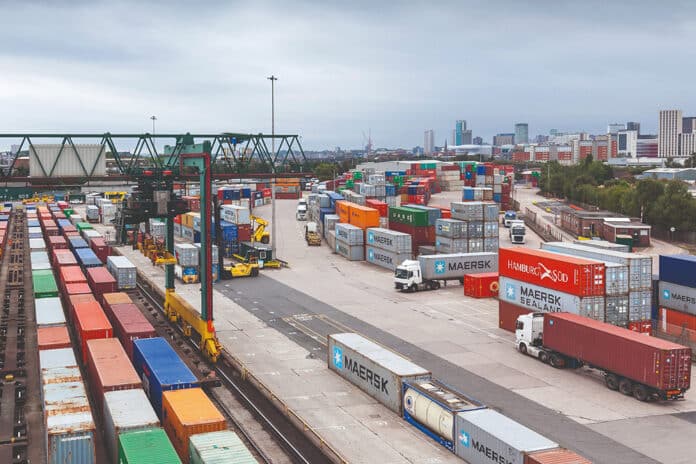New research has shown that the rail freight sector delivers billions in economic and social benefits around the UK and could play a major role in supporting the country to reach net-zero carbon emissions.
In a new report published by the Rail Delivery Group, based on independent research by Deloitte, analysis shows that rail freight delivers £2.5billion in economic and social benefits to the UK annually, with the north of England, Wales and Scotland among areas benefitting most. That means businesses all around the country benefit from reliable and economical transport services, providing efficient routes to markets and better connectivity to ports, supporting access to markets around the world.
As part of the report, Deloitte have developed a new framework which enables the value of different types of freight paths to be calculated. The model shows that each rail freight path on the network has an economic value of up to £1.5 million per year and highlights the benefits that could be realised by transporting more goods by rail.
Robert Nisbet, Director of Nations and Regions for the Rail Delivery Group said: “Rail will play a central role in levelling up Britain and rail freight is already doing some heavy lifting, supporting businesses and jobs across the nations and regions. As we work to secure a green recovery from COVID, encouraging more businesses to move their goods by train coupled with a rolling programme of electrification would see rail freight play an even bigger role in helping the nation to meet its carbon commitments.”
Each tonne of freight transported by rail produces 76% less emissions compared to road and with a freight train carrying as much as 110 lorries, an increase in rail freight will not only shrink Britain’s carbon footprint but cut traffic jams too. The Deloitte research shows that rail freight is tackling gridlock and pollution in England’s most congested city, removing as many as 1,000 lorries from London’s roads every day with similar benefits for cities across the UK.
The study found that freight trains are transporting more consumer items, including groceries, cars and electronics than ever before. Every day goods that we all use and consume travel by rail and this benefits everyone, not only by removing lorries from congested roads – making journeys more pleasant and reliable for other users, but also by providing cost efficient transport to businesses, the consumer benefits through lower prices.
The volumes of building materials moved by rail have also continued to grow, supplying construction materials to improve the road network, build new houses and even for our DIY projects. Moving vast quantities of materials such as aggregates and cement is vital to building and infrastructure projects and supporting Britain to build back better.
As Britain begins a new era outside the EU, increasing rail freight will help to cut customs queues at ports with government recently granting funding to create a new customs approval area at an inland rail freight terminal, a proposal first made by the Rail Delivery Group in 2018. The rail freight sector has played a crucial role in the national response to COVID-19 and following the end of the EU transition period, helping to keep goods moving securely and the economy ticking.
- Read the full document ‘The role and value of rail freight in the UK’ here
- Economic benefits include the costs and reliability of freight services to businesses. Social benefits include reductions in carbon, road congestion, pollution and noise and safety benefits
Photo credit: Rail Delivery Group



































 0113 2082620
0113 2082620 info@railbusinessdaily.com
info@railbusinessdaily.com 15 Mariner Court, Wakefield WF4 3FL
15 Mariner Court, Wakefield WF4 3FL

